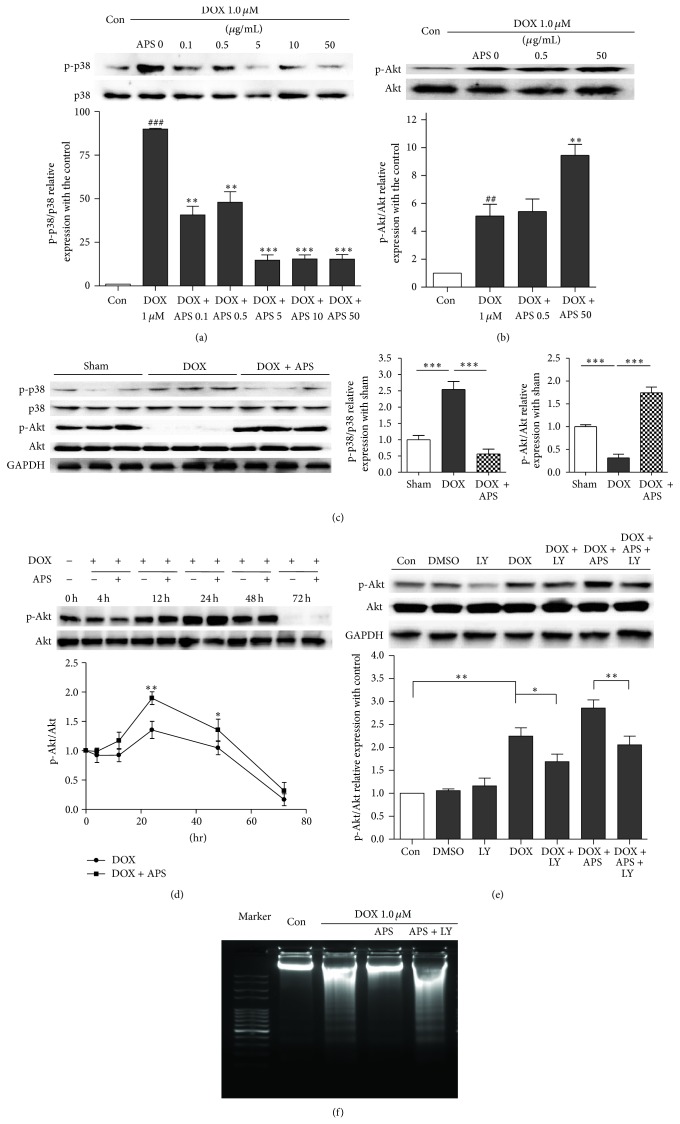Figure 5.
APS attenuates doxorubicin-induced heart injury by regulating p38MAPK and Akt phosphorylation. (a) APS decreases p38MAPK phosphorylation in a concentration-dependent manner in NRVMs as assayed by Western blotting (n = 3, ### P < 0.001 versus control group, ** P < 0.01 versus the doxorubicin-treated group, and *** P < 0.001 versus the doxorubicin-treated group). (b) APS increases Akt phosphorylation in NRVMs (n = 3, ## P < 0.01 versus control group, ** P < 0.01 versus the doxorubicin-treated group). (c) Western blotting and average data for p38MAPK and Akt phosphorylation in sham and doxorubicin-induced heart injury mice and mice pretreated with APS (n = 8-9, *** P < 0.001). (d) Time course of doxorubicin-induced Akt phosphorylation in NRVMs (n = 3, * P < 0.05 versus 0 hr sample, ** P < 0.01 versus 0 hr sample). (e) The APS protective effect was reversed by the PI3K inhibitor LY294002. NRVMs were pretreated for 1 h with 2 μM LY294002 prior to APS (50 μg/mL) and DOX (1 μM) treatment. Akt phosphorylation and cleaved caspase 3 were analyzed by Western blotting (n = 3, * P < 0.05, ** P < 0.01). (f) Cardiomyocyte apoptosis as detected by DNA laddering in control and DOX-treated NRVMs, NRVMs pretreated with APS (50 μg/mL) followed by DOX treatment, and NRVMs pretreated with APS (50 μg/mL) and LY294002 (2 μM) followed by DOX treatment (n = 4).

